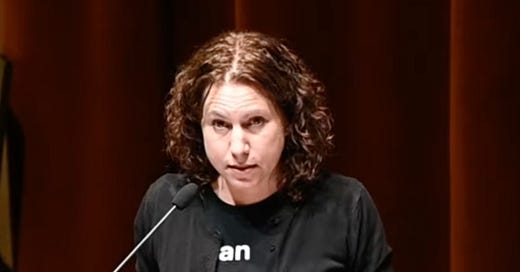June 5, 2023
This post is being sent to all subscribers to this Substack. It is free and shareable. If you would like access to content that delves deeper into the movement to protect the sex-based rights of women and girls and to stop the abolition of sex, please consider a paid subscription.
This content originally appeared on the website of the U.S. chapter of Women’s Declaration International here.
WDI USA has filed a friend of the court brief in a case called Neese v. Becerra, which is before the 5th Circuit Court of Appeals. At issue in this case are whether: (a) recipients of federal funds under the Affordable Care Act (ACA) may provide sex-specific medical care to their patients and (b) what the word sex means under Title IX of the Civil Rights Act (because the ACA incorporates Title IX in its non-discrimination provision).
From the brief:
WDI USA is interested in this appeal because it threatens the erasure of the female sex as a legal category worthy of protection. Women and girls have endured centuries of discrimination precisely because they are members of the female sex, as defined by genetics and biology. The categories of “gender identity,” “transgender woman,” and “transgender girl” erase the female sex by replacing the objective fact of being a woman with a claimed, subjective sense of being a woman. This linguistic destabilization of the meaning of sex permits males who claim a female identity to make demands on women and girls that were previously unheard of and that undermine women’s dignity and safety. In view of its work on these issues, WDI USA has a meaningful perspective to offer the Court.
We argue:
Defining sex to include “gender identity” is legally incoherent and promotes stereotype discrimination against women.
The government’s policy of prohibiting sex-specific medical care harms women and girls by prioritizing “gender identity” over sex in medical care.
The government’s policy of prohibiting sex-specific medical care ultimately harms women’s sports because federal law concerning the provision of health care incorporates the definition of sex under Title IX of the Civil Rights Act.




This is a superb, well-argued brief, and, in fact, a brilliant treatise on the entire issue under discussion. It led me to look back at the underlying decision, and the facts that led the plaintiffs to sue. For those unfamiliar, here is one telling example of potential consequences if the government succeeds in its attempted overreach in interpreting Bostock:
Dr. Hurly “recognizes that some biological men may identify as women (and vice versa).” Id. In his practice, Dr. Hurly “has encountered situations ... when he must insist that a patient acknowledge his biological sex rather than the gender identity that he asserts.” Id. at 7. Plaintiffs provide an example: Dr. Hurly “once diagnosed a biological male patient with prostate cancer, but the patient refused to accept Dr. Hurly's diagnosis because he identified as a woman and insisted that he could not have a prostate.” Id. Dr. Hurly “explain[ed] to this patient that he was indeed a biological man with a prostate, and that he needed to seek urgent medical treatment for his prostate cancer.” Id. Plaintiffs claim “Dr. Hurly has treated transgender patients in the past, and he expects to continue doing so in the future.” Id. Plaintiffs further allege: “Dr. Hurly is likely to encounter transgender patients who will deny or dispute their need for health care that corresponds to their biological sex, and he intends to provide care to these individuals in a manner consistent with his ethical beliefs.” Id.
Great brief. Really irrefutable.